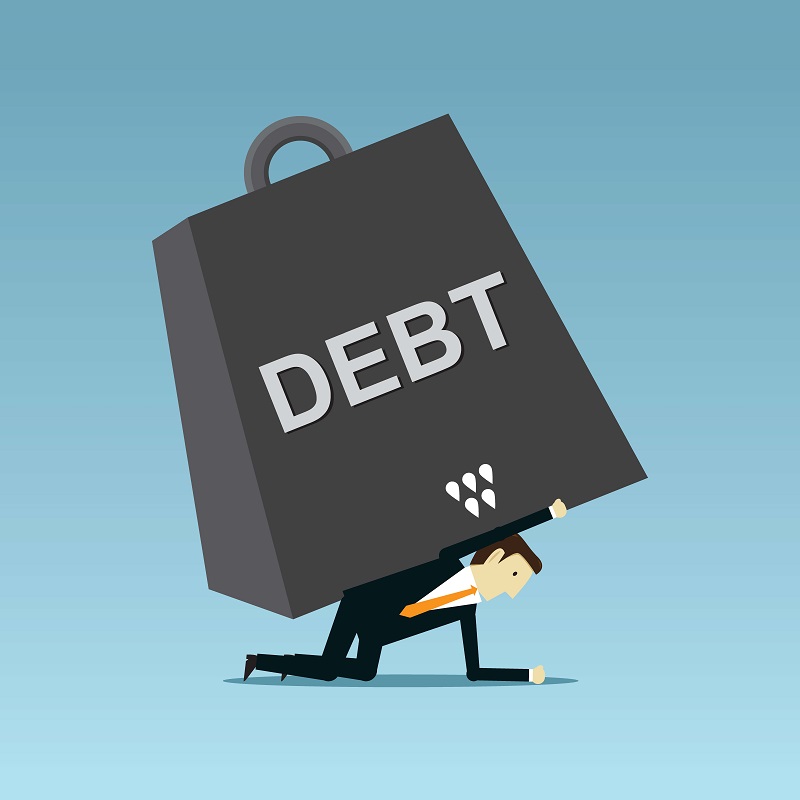
Debt management is an essential part of maintaining your financial health over time. If you have taken out a large loan or several loans to pay for big purchases such as a car, house, or apartment, you may find your debt has accumulated past acceptable standards. Many people accumulate significant debt just with excessive credit card use as well. Here are a few effective strategies to manage your debt and make small changes on reaching a relatively debt-free existence.
Formulate A Plan
The first step of personal debt management is undoubtedly laying down a plan and a budget to make sure you are meeting your day-to-day needs and paying the bills but still having enough income to cover the minimum loan payments on all your major loans. List your sources and amounts of income and then list your expenses. Lessen the expenses wherever possible such as canceling subscriptions, moving to cheaper accommodation, or doing without vacations or dining out. Expenses such as insurance premiums or mortgage payments can be renegotiated at better interest rates so don’t miss an opportunity to do that. When formulating a budget make sure you keep ledgers as well as learn about more formal budgeting methods.
Home And Car Financing
Balance your secured and unsecured debts. Secured debts mean you have attached collateral or security to them by promising your car or home to the creditor in the event of nonpayment. In many cases, it is unsecured debts such as credit card debts that create the most problems and hasten financial decline. For secured debts, your home or car or any other valuable possession can be seized by the creditor if you do not keep on top of loan payments. Maintaining periodic contact with your creditors is vital to preventing this if you feel you are falling behind on payments as this may give you the chance to revise some of the original terms of the loan.
Furthermore, if you cannot pay the loan installments any expert will advise you that instead of letting the creditors possess the car you should make a sale of it yourself and pay back the loan. The earlier mentioned strategy applies to mortgage payments you are behind on as well as you should maintain regular contact with the creditor institution so you can assure them of your ‘good faith’ and that you just need some time to get the payments back to regular.
Debt Settlement And Counseling
Contact debt relief agencies near you or follow the website to guide you about how to revise loan agreements with creditors, as they will often reach out in your place. They can also direct you towards debt settlement solutions like credit counseling and debt consolidation. Debt consolidation is the process through which a single creditor gives you a large loan that you can use to pay off multiple smaller loans.
You are given a lower overall interest rate in most cases as well as some financial counseling and advice on how to better manage your income and assets. Credit counseling in particular is often carried out by nonprofits so you can educate yourself at the bare minimum of expense regarding how you can manage and invest assets to improve your financial health.
You can benefit by signing on with a debt management program that allows an expert to review your financial situation and history and come up with a plan to pay your creditors (in some cases renegotiating terms with them). In most cases, you will be asked to deposit money regularly in the program so they can pay back all your loans in accordance with the plan they have developed.
An Emergency Fund
An integral part of maintaining good financial health while being in debt is to build up an emergency fund. Take some money out every month from your total income and put it aside in a separate savings account (depending on whether you are paid per contract or in a salary form as well as other forms such as rental income and so on). An emergency fund lessens the need to borrow money when a need such as a medical problem arises so it contributes to lesser debt in the long run.
Keep Your Credit Score Good
Your credit score or rating directly influences your ability to borrow money from any institution. If you are currently submerged in debt, consider dedicating one or two bank accounts to the repayment of the loans so you are not receiving a bad credit score on all your accounts at once. Furthermore, selling a large asset such as a car to stop debt accumulation at the crucial stage is also invaluable to stop your situation from deteriorating into insolvency.
